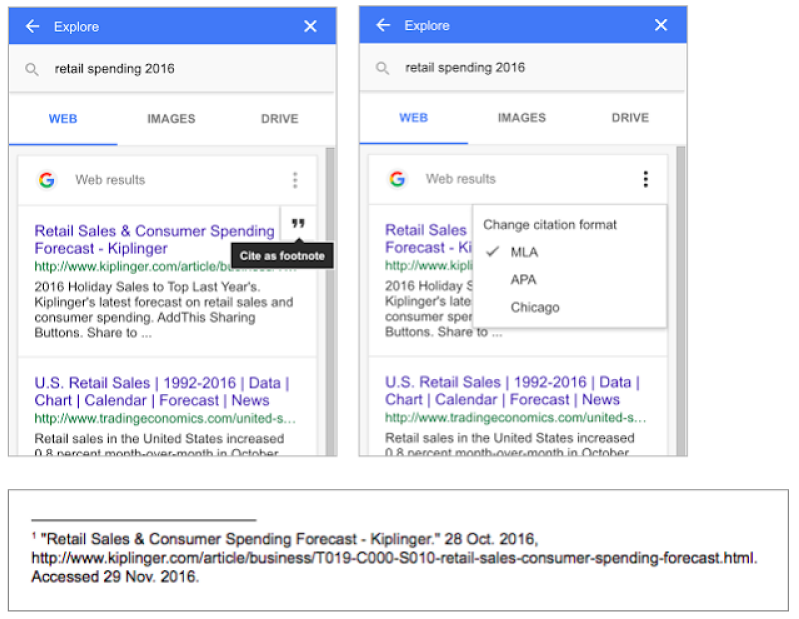
Google Docs has just released an intuitive and smart tool into its long list of innovations. As part of its Explore tool released back in late 2015, the quick citation button has just been updated yesterday to accommodate an even quicker way of doing APA, MLA and Chicago citations.
Before the update, citations had to be manually inserted as a footnote. This can be particularly challenging especially with the big differences with the three citation formats. Now, citing can be as easy as clicking the single quotation marks (") on the right-hand side of the screen which indicates "Cite as footnote" when the arrow hovers over it, and choosing which format suits the user best with options on APA, MLA, and Chicago. Harvard, one of the other citation formats, isn't included just yet in the options.
Updating the Google Doc app on one's smartphone will give this new update. When using the desktop version, there are no more manual updates to be made; the new feature will be added automatically.
Ritcha Ranjan, Google Product Manager, says of the new innovation, "We built Google Docs to help you create your best work... From work, school or home, and everywhere in between... Explore in (Google) Docs makes researching and writing reports on the go a whole lot easier... Less time spent switching between apps (and) more time to polish your ideas."
How is it possible to know which citation format is best to use? Unless a professor specifies which one to use, here is an overview of the three citation formats:
1. APA stands for American Psychological Association. It is often used in the fields of education, psychology and the sciences.
The most important for APA citation is date. Therefore, in-text citation would look like this: Author's Last Name (Date); or, (Author's Last Name, Date, Page number).
2. MLA stands for Modern Language Association. It is used in the humanities.
The most important for MLA citation is author. In-text citation would be formatted as: (Author's Last Name Page number); or, Author's Name followed by text (Page number).
3. Chicago/Turabian stems from the University of Chicago. It is usually used in the fields of business, history, and fine arts.
Like MLA, the most important for Chicago citation is author. In-text citation is written on footnotes for a non-cluttered style for documents. For example, Sentence 1 is how it is cited, with the number referring to work citation found on the footnote.







